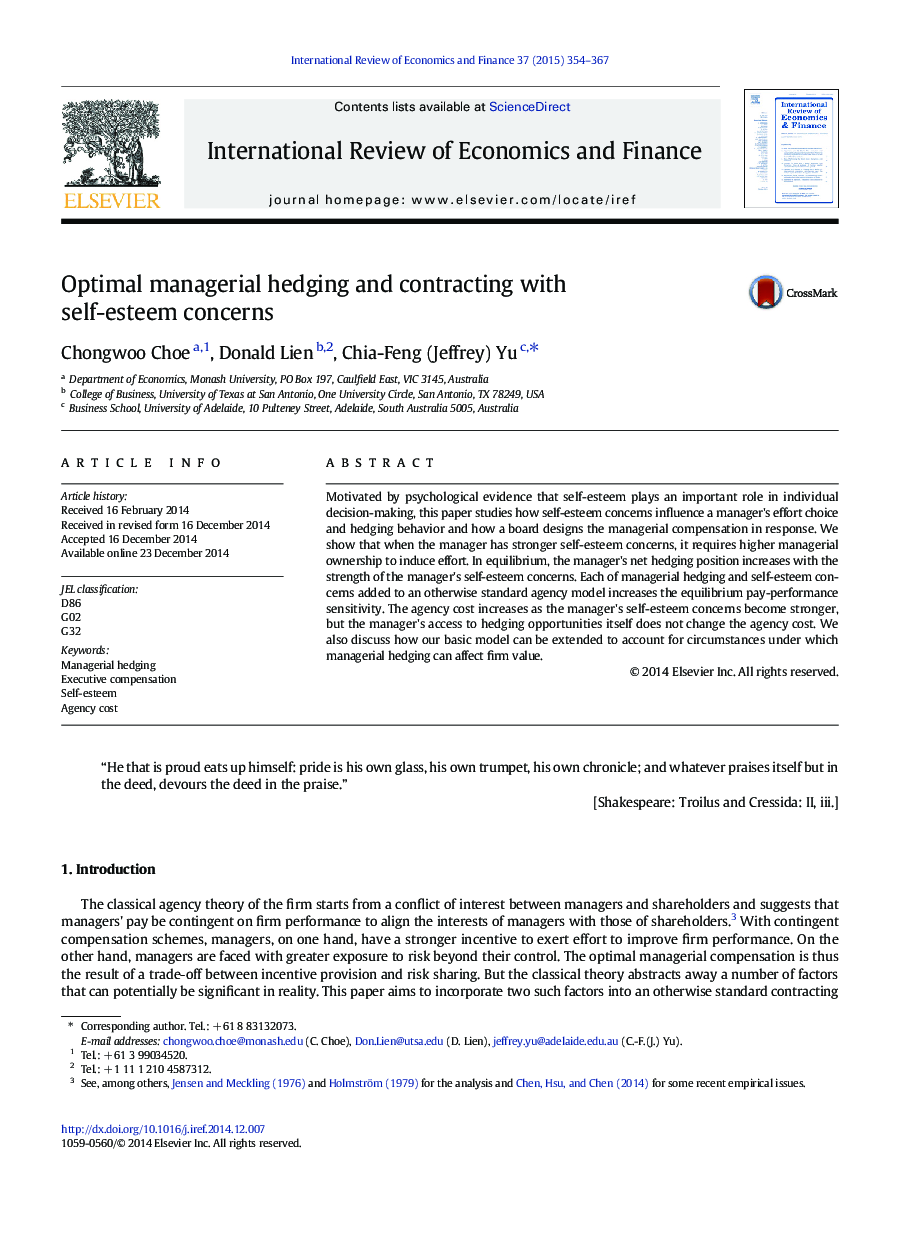| کد مقاله | کد نشریه | سال انتشار | مقاله انگلیسی | نسخه تمام متن |
|---|---|---|---|---|
| 5083435 | 1477805 | 2015 | 14 صفحه PDF | دانلود رایگان |
- We study how self-esteem concerns influence a manager's effort and hedging choices and the managerial compensation design.
- The equilibrium net hedging position increases with the strength of the manager's self-esteem.
- Both self-esteem concerns and hedging raise the optimal pay-performance sensitivity.
- Self-esteem concerns increase the agency cost but hedging does not.
- We discuss circumstances under which hedging is relevant.
Motivated by psychological evidence that self-esteem plays an important role in individual decision-making, this paper studies how self-esteem concerns influence a manager's effort choice and hedging behavior and how a board designs the managerial compensation in response. We show that when the manager has stronger self-esteem concerns, it requires higher managerial ownership to induce effort. In equilibrium, the manager's net hedging position increases with the strength of the manager's self-esteem concerns. Each of managerial hedging and self-esteem concerns added to an otherwise standard agency model increases the equilibrium pay-performance sensitivity. The agency cost increases as the manager's self-esteem concerns become stronger, but the manager's access to hedging opportunities itself does not change the agency cost. We also discuss how our basic model can be extended to account for circumstances under which managerial hedging can affect firm value.
Journal: International Review of Economics & Finance - Volume 37, May 2015, Pages 354-367
